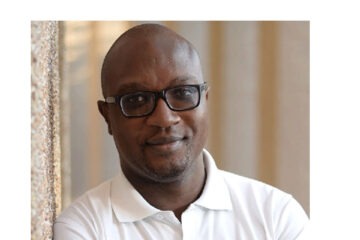Tujoromajo Kasuto
The nomination of only two candidates for the position of secretary general of the Swapo Party following the conclusion of the nomination process at the Central Committee at the weekend raises many questions about the value of the position in the Swapo structures.
This is the view of historian and analyst, Henning Melber, why there has been such a lacklustre interest in the secretary general position then the positions of vice president and deputy SG.
Only one candidate has been nominated, apart from the incumbent who did not need nomination and declared herself available.
The two candidates are incumbent, Sophia Shaningwa and Oshikoto Swapo regional coordinator, Armas Amukwiyu, challenging Shaningwa for the second time after losing out at the 2017 congress.
Melber says that the position of SG is much more crucial than the competition or rather lack of competition for it suggests.
He expresses that this creates the impression that Swapo cadres are more interested in fancy political offices in government rather than using time and energy to bring the party up to standard.
“This can partly be explained by the fact that internal divisions make it almost a mission impossible to refurbish the organisation. With different interests at play, a SG will always be confronted with resistance by some. To reduce this, the position should be one which is recognised as an important one beyond answering questions by journalists considered as nuisance,’’ he said.
In many parties the world over, an SG is considered as one of the most important and powerful posts to be held, with large influence over party internal matters.
In Swapo, this is not the case, Melber notes, further adding that the SG is far less influential when it comes to party internal matters and the president, the Politbureau and the Central Committee are the decisive institutionalised bodies of power.
‘’A SG is not a very attractive career, compared with a ministerial post or the vice presidency as a kind of succession to the throne. Swapo is a very hierarchical organisation. With the party president also the head of state (unless heading for retirement), a SG has not the necessary authority to take meaningful party-internal initiatives. It remains largely an administrative office, but not one of political influence,’’ he explains.
Hence, he observes that those who are ambitious do not have this post on their cards.
‘’This is not in the best interest of the party, since it needs to constantly monitor and test its political meaning and programme. Instead, it remains formed by different factional interests without a captain at the steering wheel who has the authority of initiating reforms from a commanding height in addition to the president,’’ states Melber.
However, he asserts that this does not mean an SG would be the one who is responsible for a change of the course, but it would install an SG with the task to advise pro-actively, initiate
meaningful party-internal debates and encourage policy debates which influence the political programme of the party.
He opines that as long as the SG remains more a token position than one of influence, people will remain more interested in their personal career elsewhere, but this is at the expense of the party, which misses an opportunity to adapt to new realities.
Political analyst Hoze Riruako stated that the SG is a critical position to Swapo this time around in order to regain its popularity and, secondly, to clean up its tainted image.
Thus, he asserts that it is up to a very strong SG to give Swapo a new look and revive the ‘’noble and virtuous qualities’’ that the party once displayed.
‘’You need a strong individual, a person who will be able to move with force and call the cadres to order, a person who will be an embodiment of those types of qualities that voters who have been ostracised, ridiculed and those many who have resorted to joining other political parties back,’’ he says.
Riruako emphasises that the driving force of any political party is the SG and a vibrant youth, not to mention the women element, particularly in this day and age.
University of Namibia academic and political analyst Phanuel Kaapama says that ‘’a party that does not prioritise their SG position is setting itself up for failure’’.
Keeping in line with Melber, Kaapama said that the SG position is the second most powerful within the Swapo Party and any other political formation, as this position is responsible for the day to day administration.
He notes that the person in this role is the ‘’engine’’ of the party, adding that the general public should not be ‘’misled by the nominations and assume that four nominations is what demonstrate the importance of the position’’.
Looking at the tenure of Shaningwa, Kaapama said that looking at the problems that the party has experienced such as divisions have more to do with the contest during the last election and then the SG’s capability to administrate internal matters.
‘’Looking at the CVs of these candidates, one has been the incumbent and thus is familiar with the position, and the other has been a regional coordinator for the last 16 years or so, so they are well equipped in terms of understanding the party and the administrative operations, and there is nothing new for them to learn,’’ he said.
Last weekend the Central Committee endorsed Politburo nominations of Saara Kuugongelwa-Amadhila and Netumbo Nandi-Ndaitwah as Vice President candidates and Shaningwa and Amukwiya as candidates for the SG position.
The CC nominated no one additionally to the SG contest, but nominated four other candidates to the Vice Presidency race out of which Pohamba Shifeta and Frans Kapofi succeeded joining the incumbent and Kuugongelwa-Amadhila.
The Deputy SG position also saw three more added to the Politburo’s three from which two were eliminated, leaving four in the race.




